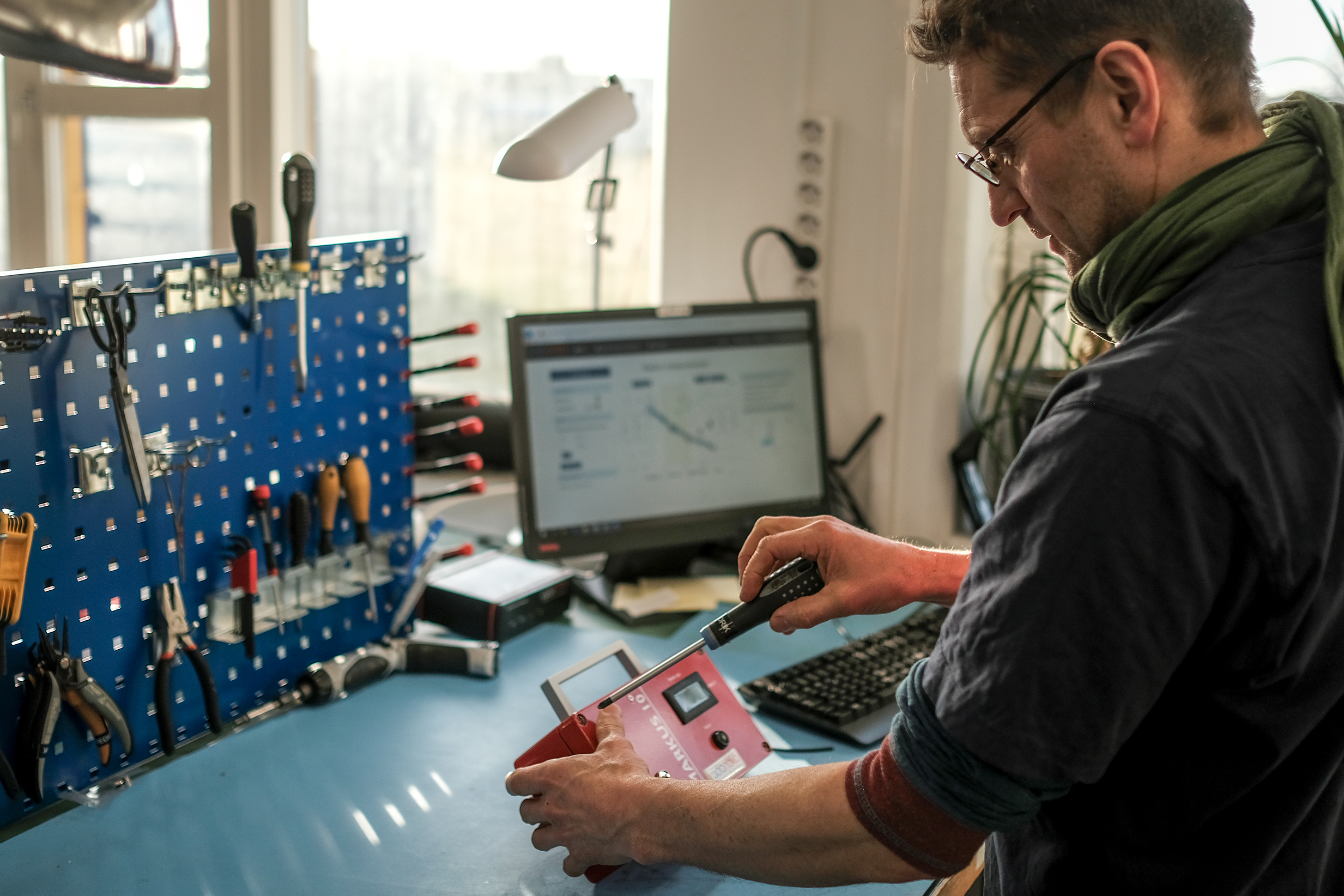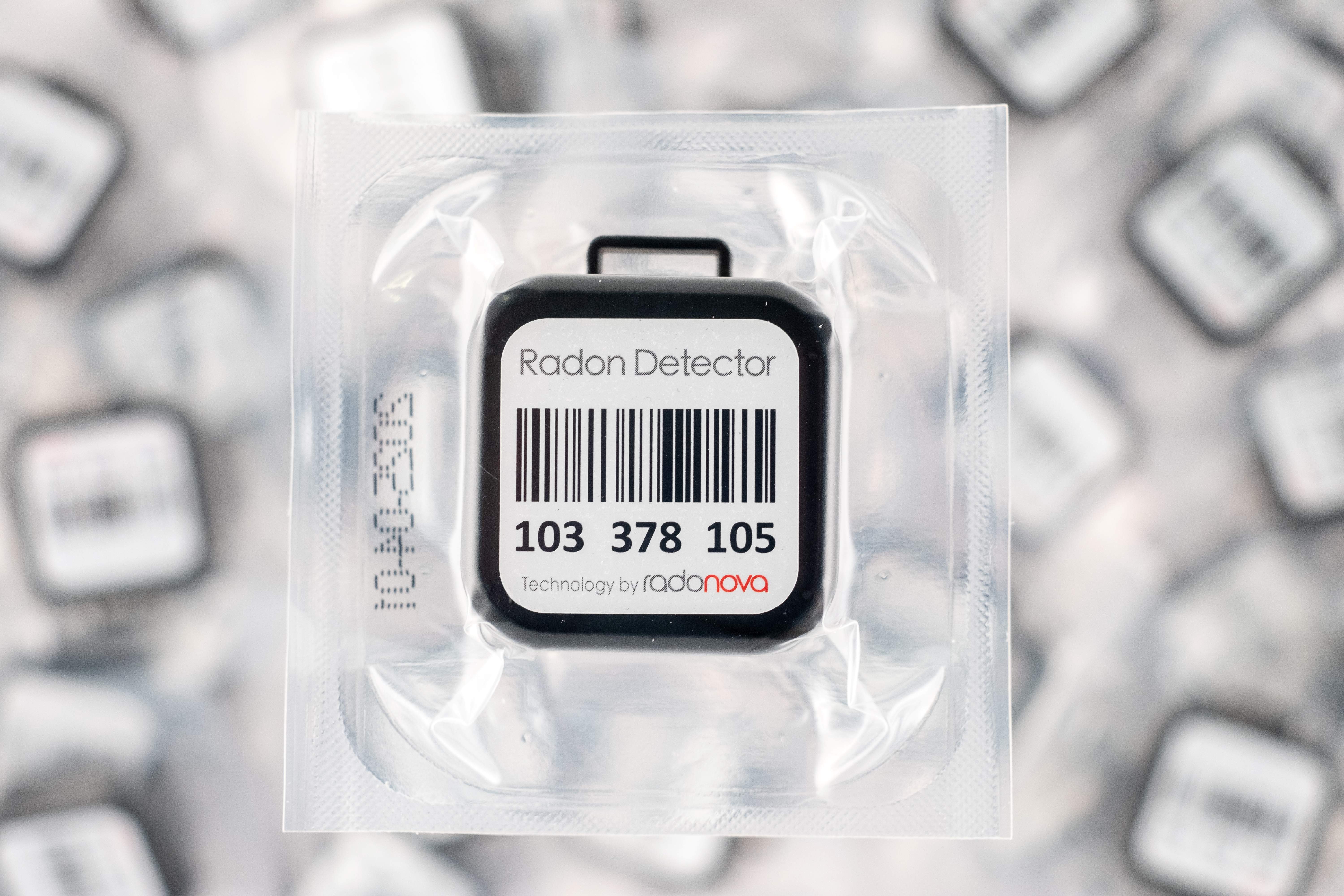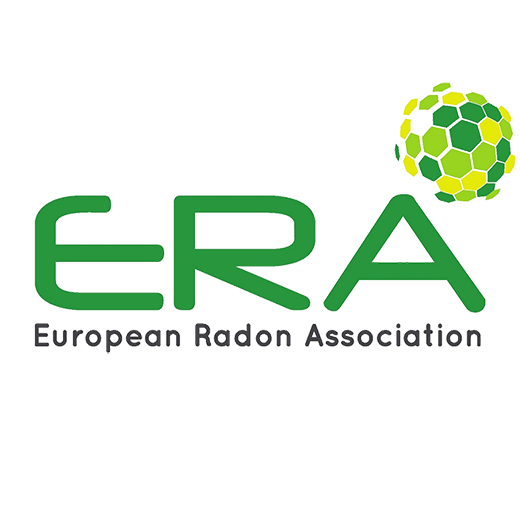The season for measuring ground radon is nearly upon us. This coincides with there being a sharp increase in the global demand for reliable radon instruments. For Fredrik Lindén and his colleagues at Radonova’s radon instrument production department, this equates to long days to fulfil customer requests.
”When assembling radon instruments we use state-of-the-art technology, but there is still a requirement for experience and craftsmanship. Our quality standards are very high, and every instrument that is manufactured here is tested for reliability to ensure it is field ready”, comments Fredrik Lindén.
Focus on timely, fast delivery
“To meet market demand, we are currently focusing on producing high volumes of MARKUS 10 – a portable, battery-powered instrument. We pride ourselves on our ability to deliver quickly, therefore we have to stay one step ahead of orders to ensure our stock is always able to accommodate future sales. Every instrument consists of numerous components, which means we have a very close relationship with our suppliers to ensure that all deadlines are met. Parts used to create our instruments are as important as each other, therefore high standards are expected throughout the supply chain”, continues Fredrik Lindén.
Robustness and ease of use
“For a product to be successful it needs to be robust, user-friendly and thoroughly tested – these are critical manufacturing factors for us. MARKUS 10 is a very good example. As you would expect, customers demand a reliable instrument and we always strive to exceed those expectations. Prior to each final assembly, we test all components based on our own high internal standards”, concludes Fredrik Lindén.
MARKUS 10 – an overview
Ground radon is the most common cause of elevated radon levels. MARKUS 10 is a precision instrument that measures high radon concentrations. It is portable and battery-powered. Attach the MARKUS 10 and hollow measurement probe to the ground and simply press a button to start measuring. Air is pumped through the probe tube into a chamber that detects radon daughters (fine solid particles which result from the radioactive decay of radon gas). Following the pumping phase, the measurement phase commences. The result is presented in the display after 12 minutes.







